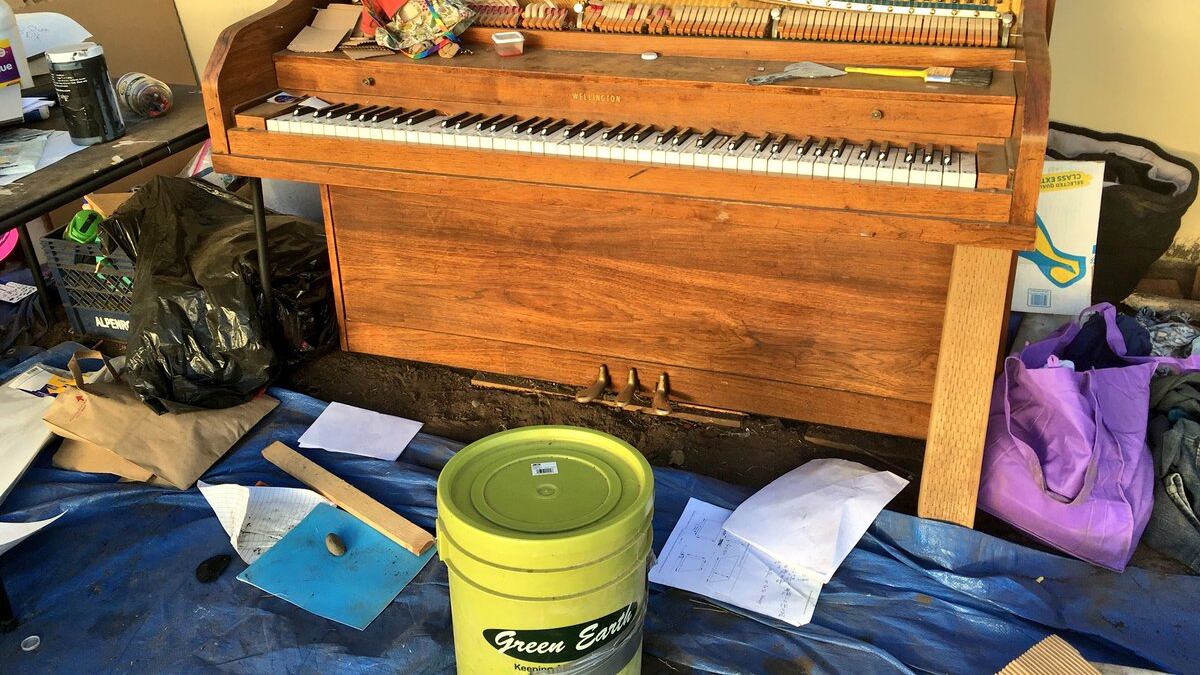Roughly 45 Portland police officers arrived at Southwest Portland's U.S. Immigration and Customs Enforcement headquarters at 4:15 this morning to clear the protest camp that has existed outside the federal building for over a month.
The sweep marks an anticlimactic end to the first blockade of an ICE building in the U.S., a protest that shut down the federal immigration agency for six days, sparked copycat protests nationwide, and became a flashpoint for Portland's political divisions in the Trump era.
The camp lasted 39 days—exactly the same length of time as the Occupy Portland camps in 2011 that seized downtown parks to protest economic inequality.
That occupation ended with dramatic defiance of the mayor's eviction order. This time, protesters fractured into separate groups, then left voluntarily when Mayor Ted Wheeler told them to go.
Police Chief Danielle Outlaw said she urged Wheeler to clear out the camp not for political reasons, but because "conditions at the Occupy ICE camp posed livability and safety concerns for the community and people staying in the camp."
The Police Bureau cited biohazards from the month-long tent city—a claim that TV crews eagerly seized on.
"I expressed this concern with the mayor," Outlaw said in a statement, "and he was in full support of moving forward to clear the camp."
Related: Portland Mayor Announces Plans to Sweep Out the Occupy ICE Camp
No arrests were made in the early-morning cleanout, though an officer did report using "baton pushes" to clear demonstrators from the camp.
Most of the protesters had already departed. On Tuesday evening, occupiers began tearing down the wooden barricades they had built to defend against fears someone would try to drive a camp through the tent city.
Occupiers expressed resignation, after a faction decided Monday to shift tactics and leave. "We've surrendered," one person told WW's news partner KATU-TV.
Here's a look at what the camp looks like now. There's only about eight people here now. They tell me they plan to clean up. #OccupyICEPDX #LiveOnK2 pic.twitter.com/EEQ11LJsKx
— Lashay Wesley (@LashayKATU) July 25, 2018
The camp's end was greeted with glee by federal agents and ICE's right-wing supporters.
Soon after the sweep was announced yesterday, a sign reading "Adios Felicia" was taped to a window on the top floor of the ICE facility.
'Adiós Felicia' Sign on Top-Floor of ICE Facility in Portland.
— Mult.CountyCopwatch (@MultCo_Copwatch) July 25, 2018
"When someone says that they're leaving & you could really give two shits less that they are. Their name then becomes "Felicia"...their real name becomes irrelevant."https://t.co/zGte4HbwZi@OccupyICEPDX @tedwheeler pic.twitter.com/esAQDQ2RHo
Late last night, Joey Gibson—the right-wing U.S. Senate candidate from Vancouver, Wash. whose campaign has chiefly consisted of brawling and screaming in Portland streets—also arrived at the camp.
According to a report from KOIN 6, Gibson and a small group of Patriot Prayer members showed up to the ICE headquarters around 10:30 pm in a yellow school bus. Their goal appeared to be to taunt the handful of remaining occupiers and capture the exchanges on video.
Footage shows the few remaining occupiers and alt-right protesters yelled at each other from across the still-standing camp barricade. Patriot Prayer members arrived in helmets, appearing ready to brawl, but there was no physical violence. Gibson and his group left a couple hours after arriving, at around 12:30 am.
Patriot Prayer leader Joey Gibson stands in front of the #OccupyICEPDX camp just outside the ICE facility in SW Portland https://t.co/vXD0toY0zn pic.twitter.com/7Zhz3cTSfx
— KOIN News (@KOINNews) July 25, 2018
PPB says three companies contracted by the city are currently clearing the area of remaining debris, and that police officers will remain on site until the camp is empty. Portions of Southwest Bancroft St. and Southwest Moody Ave. near the ICE facility will be closed until later this afternoon.
Trash removal underway at former #OccupyICEPDX encampment. Clean up costs divided between bldg and property owners. City and State agencies among them. #LiveOnK2 pic.twitter.com/NTlT04MObl
— Mary Loos (@MLoosKATU) July 25, 2018
The camp's anticlimactic end belies the degree to which it captured local and national imaginations by directly defying the operation of President Donald Trump's policies of deportation and family separations.
And the response of local officials—who vocally supported the protest, ordered police not to intervene on behalf of ICE, and ultimately negotiated to usher the camp out—demonstrate the difficult balancing act of practical opposition to federal immigration policing.
That question now goes to voters. A ballot measure to strike so-called "sanctuary" laws from Oregon will appear on the November ballot—the largest referendum in years on how Oregonians feel about their undocumented neighbors.

